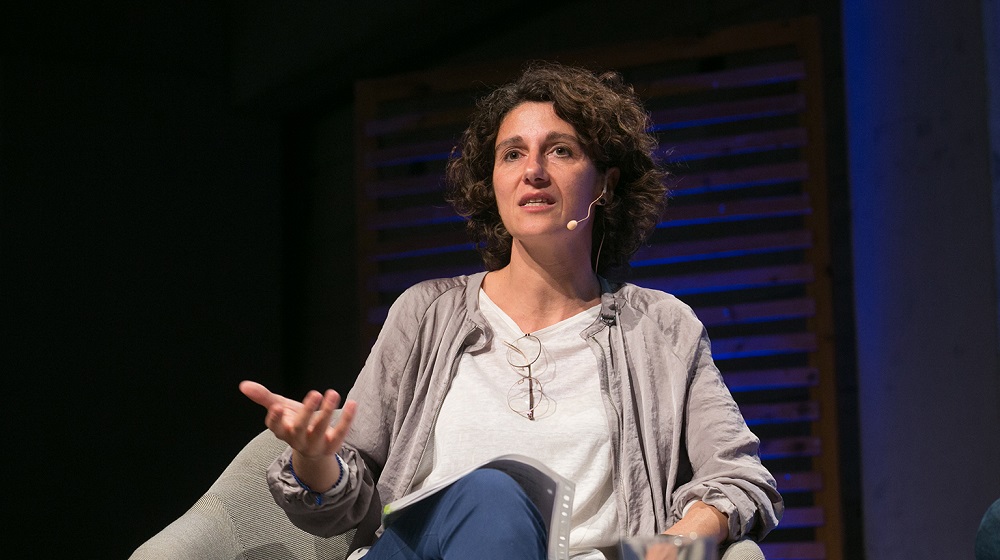Activities for groups and schools
Marina Garcés: lecture for secondary students
The time of promises
There are many things about the future that we don’t know, but we all know how to make promises. And, if we don’t know, we can learn. A promise is the expression of a desire that involves a commitment to something and a bond with someone. Making promises requires us to find out what we value in the present, who matters to us and what actions we feel able to commit to.
Imagine a difficult situation: a mother has to migrate to find a source of income for her children and, when she leaves, the eldest son says: “I promise to take care of my brothers and sisters.” Or this one: two friends who are victims of bullying promise to stand up for each other. Or a grandson promises his grandma to remember her when she’s no longer there. We can imagine as many promises as relationships we can create. All of them point to a future, which, in this way, we make our own. We may not know what will happen in the future, but our promises give it direction and intention that no one can take from us. We may not be able to keep all our promises, but we will know where we are going, why and for whom. Promises won’t make the future more certain, but they do make it less unsure and less arbitrary.
The future is an era of broken promises as well. Promises of progress, better education, greater freedoms and greater justice for all seem to be breaking apart at an unprecedented rate. Who made them and who breaks them? Who enabled us to imagine them and who turns them into utopias of a past that escapes us? Promising something to someone (or to yourself) is like taking a journey into the future that has to be lived every day, in the present, and that gradually transforms us.
This is why the philosopher Marina Garcés is inviting young people in our city to delete the questions of fear and make the future a time for promises. This exercise in collective imagination opens the new edition of the Biennial of Thought, on 11 October, on the big stage in Plaça Coromines. Starting in September, the secondary schools that sign up for the session will receive teaching materials specifically designed to prepare for this debate, to reflect, and to try out promises for the future in the classroom.
The conference has didactic material to prepare this debate in classrooms, to reflect, and to rehearse promises for the future. The proposal has been drawn up by high school philosophy teachers Glòria Mèlich Bolet and Núria Conejero Montal. The file may be downloaded here.
SPACE: Plaça Joan Coromines
LANGUAGE: Catalan
